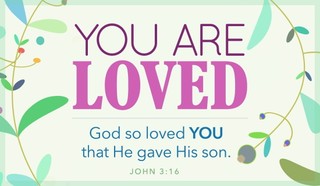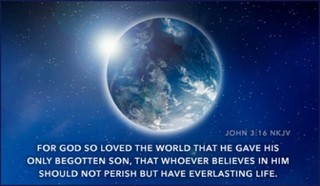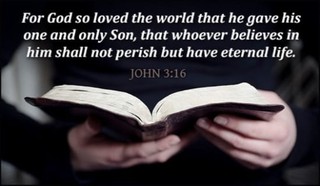
- Recent Translations
- All Translations
Yochanan 3:22
Share
Settings
Yochanan 3:22 Meaning and Commentary
After these things
After Christ's coming to Jerusalem, at the feast of the passover, with his disciples, and driving the buyers and sellers from the temple, and doing the miracles he did there, upon which many believed on him; and after the long discourse he had with Nicodemus, concerning regeneration, and other things:
came Jesus and his disciples, into the land of Judea;
or "into Judea the country", having been in Jerusalem, the city part or chief city in Judea; so that the country is distinguished from, and opposed to the city. And thus, a countryman, and a Jerusalemite, or citizen of Jerusalem, are distinguished F12;
``if, (yntrqh) , "a countryman", (one that lives in the country any where in the land of Israel out of Jerusalem F13,) receives a field, (ymlvwrym) , "from a man of Jerusalem", the second tithes belong to the Jerusalemite; but the wise men say, the countryman may bring them up, and eat them at Jerusalem.''Or, it may be, because that Jerusalem was part of it in the tribe of Benjamin, and the other in the tribe of Judah; therefore, when Christ, and his disciples, left Jerusalem, they might more properly be said to come into the land of Judea. Indeed, it is commonly said by the Jews F14, that Jerusalem was not divided among the tribes, and that it did not belong to any tribe; and if so, then with greater propriety still might Christ be said to come into the land of Judea, when he departed from Jerusalem; unless it should be thought, that he went into Galilee, and after that came into the land of Judea; so Nonnus:
and there he tarried with them:
with his disciples, as Nonnus; and with the inhabitants of those parts: he made a longer stay here than at Jerusalem, having more work to do here, and being more delighted with the plainness and simplicity of the country people; or "he conversed" with them, as the Syriac version renders it; he exercised, and employed himself among them, as the Greek word used signifies: he went about from village to village, doing good, healing diseases, and preaching the Gospel which was made useful to many:
and baptized;
not he himself, but his disciples, by his orders, and in his name; see ( John 4:2 ) ; whereby he gave fresh countenance and sanction to the ordinance of water baptism, administering it to others, as well as submitting to it himself.
F12 Misn. Demai, c. 6. sect. 4.
F13 Maimon. Bartenora in ib.
F14 T. Bab. Yoma, fol. 12. 1, & Megilla, fol. 26. 1.

